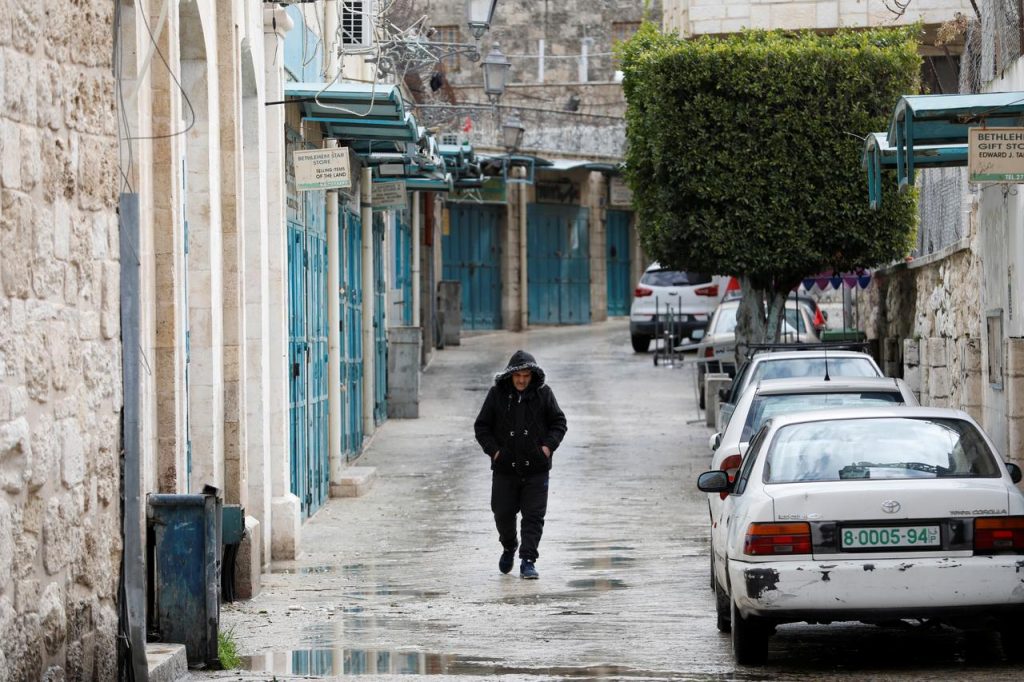
- ARAB NEWS
- 11 Jul 2025

The besieged Gaza Strip is a coronavirus disease (COVID-19) time bomb that could explode at any moment. Health authorities there ordered a lockdown two weeks ago after two cases were discovered on March 22. Since then, more than 1,500 people have been placed in quarantine and more than 2 million residents ordered to stay at home. Social distancing in one of the most overcrowded places on the planet is a sick joke. The Strip has been under an economic blockade by Israel for more than 13 years. The last military onslaught on Gaza was in 2014, turning hundreds of residential buildings into rubble. It is estimated that every individual has an average of 0.18 square meters of personal space. The threat of contracting and transmitting the virus is higher than in any other region.
Back in 2012, the UN Relief and Works Agency for Palestinian Refugees (UNRWA) warned that the Gaza Strip would be uninhabitable by 2020. UNRWA itself has been struggling financially since the US suspended its aid two years ago, making its crucial role in Gaza even more difficult to fulfill. More than 50 percent of the population is unemployed — the figure is more than 75 percent for youths — and is dependent on food handouts. There is virtually no economy, no clean water, an intermittent power supply, and an acute shortage of medicine and ventilators. The health system has been overwhelmed for years. The UN estimates that, to keep hospitals running, an urgent investment of $35 million is needed. More than 1,000 testing kits have been delivered, but that is a drop in the ocean.
By all estimates, Gaza is unprepared for a virus outbreak; it does not have enough hospital beds, intensive care units or ventilators. The possibility of an outbreak is particularly high in light of the over-crowdedness and poor sanitary infrastructure. Aside from the dangers of a COVID-19 outbreak, hospitals have to deal with other diseases like diabetes, hypertension, renal failure and respiratory illness.
But Gaza is not even on the radar of the international community. It is completely dependent on Israel for the flow of essential goods and medicines. And Israel is slowly waking up to the reality that an outbreak in Gaza will almost certainly threaten its national security. But the right-wing government in Tel Aviv is taking its time to respond. It recently opened the border to facilitate the entry of testing kits and medicines, but that is not enough.
For now, Israel’s intelligence agencies are looking at the situation in Gaza and the West Bank from a security point of view. The army is drawing up scenarios to lock down entire Palestinian villages in case of an outbreak, while preparing response strategies in case of an eruption of popular protests in Gaza that could breach the separation fence. The Israeli government is also said to be bargaining with Hamas to release two soldiers who went missing in Gaza in 2014 in return for a relaxation of the embargo.
Amid a pandemic that is threatening to bring down the entire world order, this is not the time to play politics. Israel cannot use the well-being of millions of Palestinians as a bargaining chip while its own health system is overburdened as it confronts the speedy spread of COVID-19.
Israel’s coronavirus challenge is humongous, with more than 9,000 confirmed cases and 59 deaths, and models pointing to tens of thousands of potential infections. Health experts believe that most cases in the Palestinian territories can be traced to Palestinian laborers working inside the Green Line and in Jewish settlements. As the number of cases in Palestine crossed the 250 barrier, forcing the government to impose a strict curfew, Israel had no choice but to release millions of dollars in tax money to the Palestinian Authority (PA) to enable it to contain and mitigate the pandemic.
Last month, eight Democratic senators called on the Trump administration to ensure that the Gaza Strip and West Bank received all the aid necessary to combat the coronavirus pandemic. Their call went unheeded.
By all estimates, Gaza is unprepared for a virus outbreak; it does not have enough hospital beds, intensive care units or ventilators.
Osama Al-Sharif
Israel’s responsibility to the Palestinians goes beyond lifting the blockade and aiding the PA. So far, it has ignored a Palestinian request to release more than 1,000 prisoners to protect them from the virus. At least two recently released Palestinian prisoners have tested positive for COVID-19. Israel has also rejected a request to have an independent medical committee visit prisoners in Israeli detention centers.
Israel is failing to see that the current pandemic has changed geopolitical realities and, therefore, it cannot duck its responsibilities to millions of Palestinians as an occupying power. The virus knows no boundaries and an outbreak in underprepared Gaza and the West Bank will have catastrophic outcomes, not only for the Palestinians but Israel too. On the other hand, the Palestinians themselves will be defenseless if Israel becomes a virus hotspot — as many are now predicting.
Osama Al-Sharif is a journalist and political commentator based in Amman. Twitter @plato010